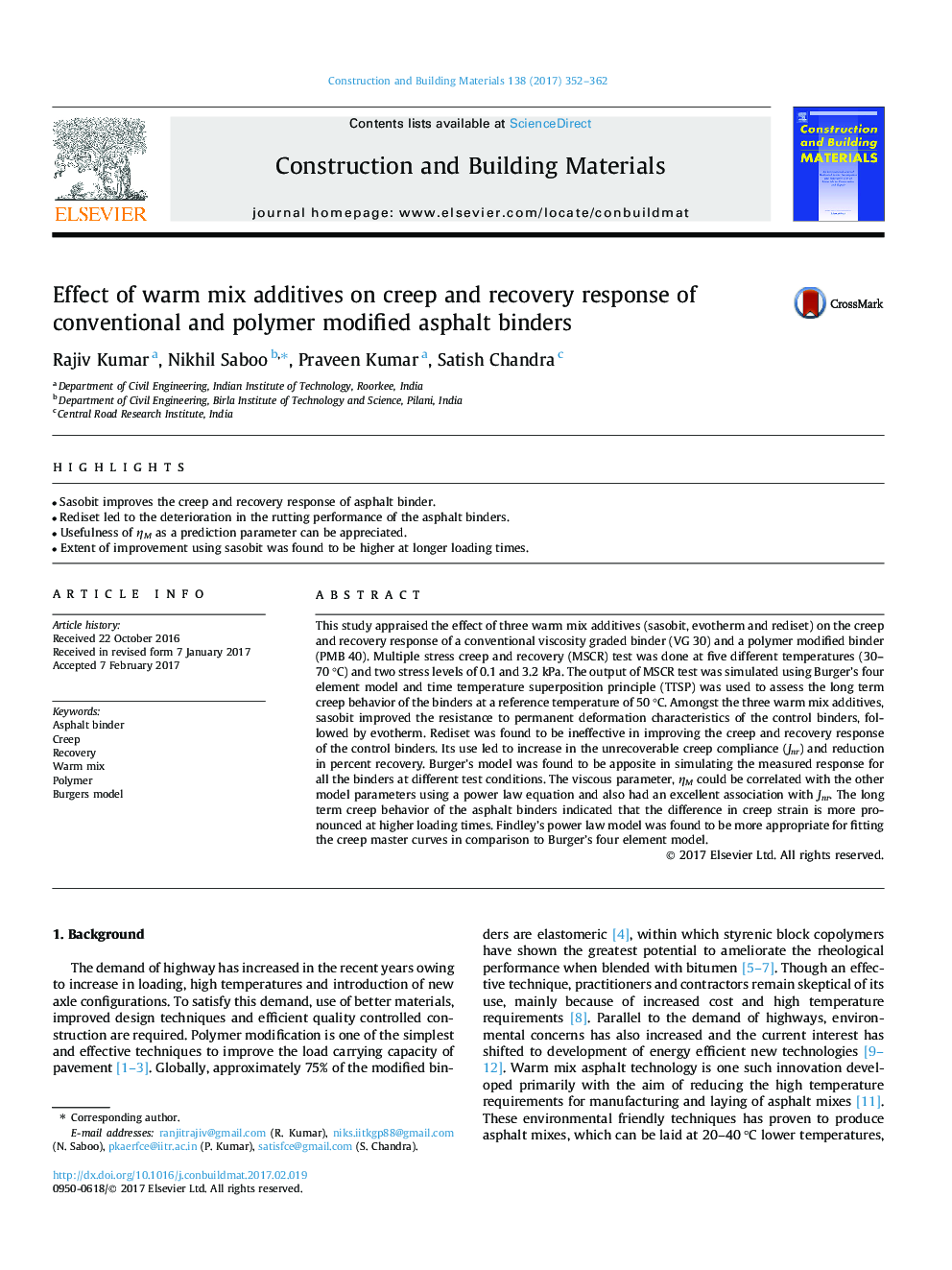| Article ID | Journal | Published Year | Pages | File Type |
|---|---|---|---|---|
| 4913725 | Construction and Building Materials | 2017 | 11 Pages |
Abstract
This study appraised the effect of three warm mix additives (sasobit, evotherm and rediset) on the creep and recovery response of a conventional viscosity graded binder (VG 30) and a polymer modified binder (PMB 40). Multiple stress creep and recovery (MSCR) test was done at five different temperatures (30-70 °C) and two stress levels of 0.1 and 3.2 kPa. The output of MSCR test was simulated using Burger's four element model and time temperature superposition principle (TTSP) was used to assess the long term creep behavior of the binders at a reference temperature of 50 °C. Amongst the three warm mix additives, sasobit improved the resistance to permanent deformation characteristics of the control binders, followed by evotherm. Rediset was found to be ineffective in improving the creep and recovery response of the control binders. Its use led to increase in the unrecoverable creep compliance (Jnr) and reduction in percent recovery. Burger's model was found to be apposite in simulating the measured response for all the binders at different test conditions. The viscous parameter, ηM could be correlated with the other model parameters using a power law equation and also had an excellent association with Jnr. The long term creep behavior of the asphalt binders indicated that the difference in creep strain is more pronounced at higher loading times. Findley's power law model was found to be more appropriate for fitting the creep master curves in comparison to Burger's four element model.
Related Topics
Physical Sciences and Engineering
Engineering
Civil and Structural Engineering
Authors
Rajiv Kumar, Nikhil Saboo, Praveen Kumar, Satish Chandra,
